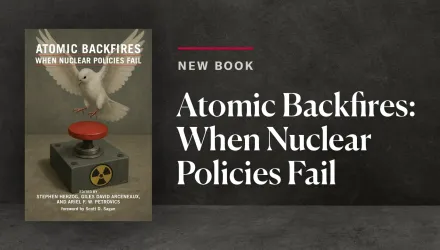The Obama administration has been cautious in its response to the evidence that the Syrian regime has used chemical weapons in part because it still hopes to convince Russia to join in an internationally supported move for a political transition from the regime of President Bashar al-Assad.
“The reason to push the evidentiary basis is to have a better chance of convincing the Russians that an international red line has been crossed,” and that appropriate action should be taken, said one knowledgeable official. “That’s the best outcome.”
Administration officials believe that although Obama is facing growing domestic political pressure to intervene in Syria, there is also a strong public desire for convincing, detailed evidence that will provide a reliable basis for military action, in contrast to the Bush administration’s misfounded allegations about “weapons of mass destruction” in Iraq.
The Russians have not yet indicated any support for the allegations that Assad used chemical weapons on March 19, as alleged by Israel, France and Britain. But they do continue to support the idea of a negotiated political transition, as outlined last year in Geneva by Kofi Annan, the former U.N. secretary general.
Administration officials say that despite Russian opposition they are moving forward with aid to train and assist the Syrian opposition that they hope will soon total $1 billion from the U.S. and its Gulf and European allies. This training program is aimed at strengthening the moderate rebel forces of Gen. Salim Idriss, the chief of the supreme military council of the Free Syrian Army.
U.S. military planners are developing detailed options for how the U.S. could take action once decisive evidence of Syrian chemical weapons use has been found. There are a range of targets, including facilities associated with the chemical weapons program, the command and control nodes of Assad’s army and special units that have been involved in the bloodiest fighting. But these would be major operations requiring a very heavy investment of money, troops and hardware, and the administration much prefers the alternative of a negotiated political settlement, if it can be achieved with Russian help.
Administration officials are wary about proposals made by some members of Congress for a limited “no-fly zone” in northern Syria that would combine Patriot missile batteries with advanced shoulder-fired anti-aircraft missiles. The Patriots and their U.S. crews would have to be moved almost to the Turkish-Syrian border, putting U.S. and Turkish soldiers at risk. So this option is viewed as more complex and risky than some in Congress have implied.
Another option under discussion is a Jordanian request to the United Nations Security Council for assistance in dealing with a refugee flow that now numbers up to 2,000 a day—and is bound to worsen as the battle for Damascus begins in earnest.
Ignatius, David. “Why Obama Remains Cautious About Syria.” The Washington Post, April 26, 2013





